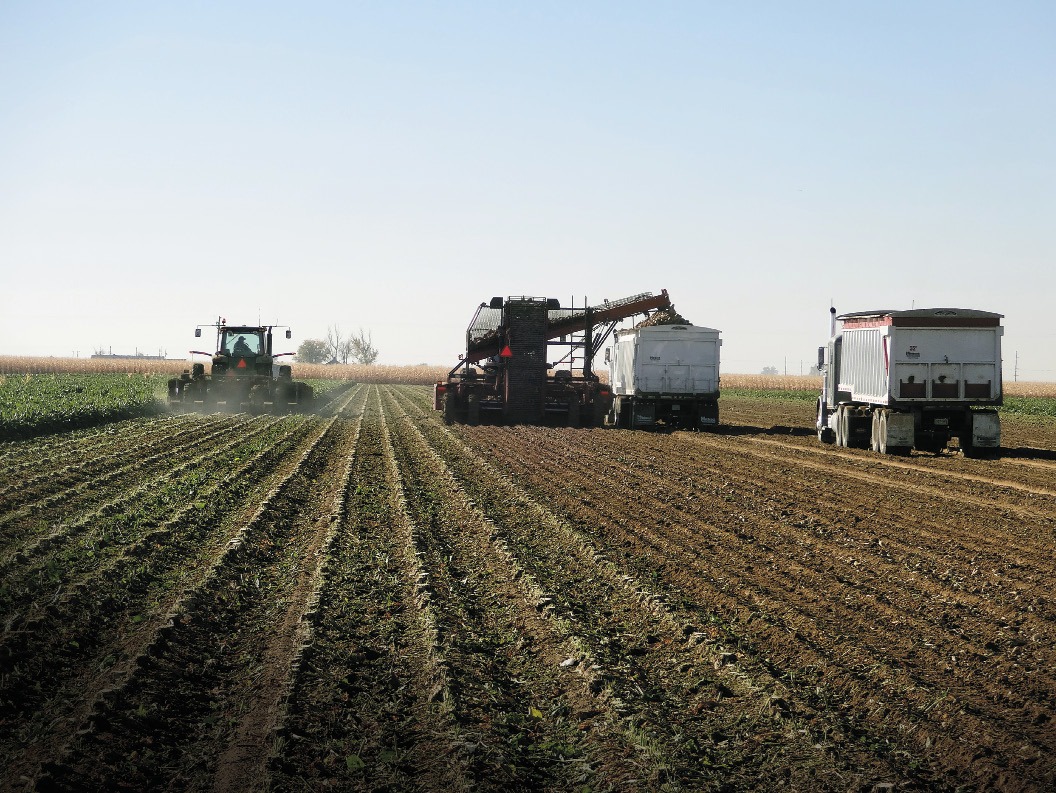 David Rupple's family has been growing sugarbeets in Hudson, Keenesburg and Prospect Valley, Colo., for five generations.
David Rupple's family has been growing sugarbeets in Hudson, Keenesburg and Prospect Valley, Colo., for five generations.
When his great-grandfather started the farm in 1946, Rupple used horses to pull his farm equipment. Since then, the horses have been replaced with tractors, and the small farm has grown considerably.
Rupple began farming in 1977 with his father and grandfather, and now he and his sons grow between 600 to 800 acres of sugarbeets annually for Western Sugar Cooperative. That same year, he attended Northeastern Junior College in Sterling, Colo., where he studied agricultural economics, animal science and took other agriculturally-related classes.
Rupple believes education is important to the future of agriculture, "especially as we move forward with high-tech equipment, such as GPS and other advanced machinery."
He said education is also necessary for marketing, accounting, and other essential aspects of farm management.
Though he has taken secondary part-time work during winter, farming has always been Rupple's full-time job. During the offseason, he's driven snow plows and de-iced planes at Denver International Airport, among other things.
"Most farmers in the area take second jobs in the winter to help out."
He has also been active in the local sugarbeet growers association, Southeast Weld Beet Growers. They serve as the middlemen between the growers and the co-op board, bringing questions and concerns to the attention of the appropriate people. He has been very pleased with the board and the way things have been handled.
He said the Western Sugar Cooperative management is "doing the best they can to bring the factories up to speed, improve the factories and improve processing."
The Rupples grow a wide variety of crops on their land. Sugarbeets are their best crop as far as net per acre, but they also grow winter wheat, confection sunflowers, small red beans, shell and silage corn, and grass and alfalfa hay.
That variety comes in handy when there is a shortage of water, as the Rupples and other growers in the area are facing now. The front range of Colorado contains several different types of basins, and water investment groups purchased the water rights to some of them several years ago. Now they are opting to export the water to other areas, so water has become a precious commodity for the growers in the region.
According to Rupple, the winter snowpack determines a great deal of their planting for the next year. Many of the farms in the area rely on snowmelt from lakes for surface irrigation. Others pump water from wells, though there are pumping restrictions in some areas. The location of the farm dictates the watering method.
Because the Rupples cropshare a great deal of their land, their fields are scattered over a wider area, and they have to juggle all the different irrigation requirements and restrictions when determining what to plant where. In low-water years, the Rupples plant crops that don't require as much water, such as wheat and confection sunflowers.
Of course, they also have problems with a few diseases that affect their beets every year. Rhizoctonia, which they treat with Quadris fungicide, has been "showing up more all the time." Cercospora leaf spot and powdery mildew make their appearance every fall, which the Rupples treat with a chemical rotation. Nematodes are also prevalent, though "resistant varieties make it manageable."
Rupple said he was very happy when Roundup Ready sugarbeets were deregulated, because it saves him a great deal on labor and input costs, and boosted yields by 5 to 7 tons per acre.
Within the last few years, Rupple has begun strip-tilling his fields, particularly the ones watered by center pivots.
He said the residue left behind has protected his fields against wind erosion and other damage, and has helped keep moisture in the soil. This has been especially important considering the water shortages facing his area of Colorado.
When asked what he sees happening with farming in his area within the next few years, he said he sees "a lot of irrigated land becoming dryland farming with different crop rotations, and land going to wheat fallow because of lack of water." Since his fields are only 30 miles from Denver, he also expects to see farmland disappearing to urban sprawl as the city expands.
However, he and his family will continue farming as long as they can, and with any luck, they can keep going for another five generations.


